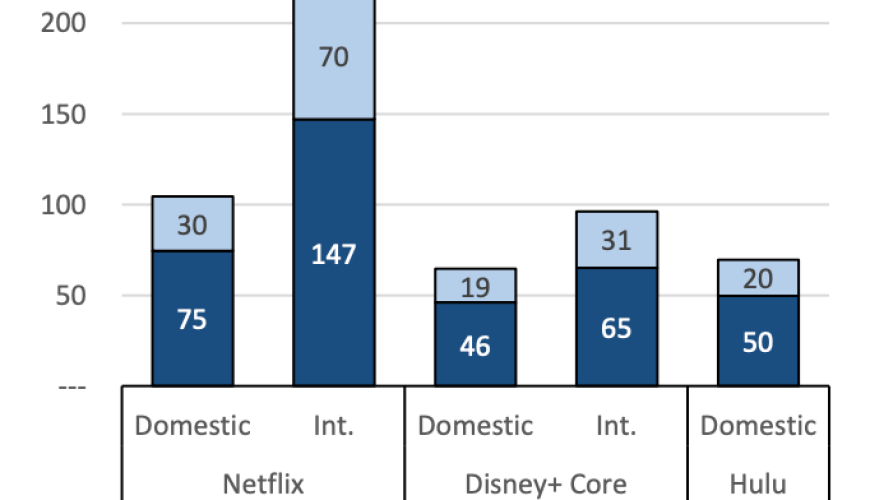Stock market today: Stocks go nowhere as Wall Street waits for inflation print

US stocks ended Monday's session little changed as investors kicked off a big week that will see a fresh inflation data test for rate-cut views and the start of first quarter earnings season.
The Dow Jones Industrial Average (^DJI), the S&P 500 (^GSPC), and the tech-heavy Nasdaq Composite (^IXIC) all closed near the flatline.
A strong jobs report helped lift stocks on Friday but couldn't fend off weekly losses as doubts about the Federal Reserve's resolve for interest rate cuts preyed on minds.
The yield on the 10-year Treasury (^TNX) stood at 4.42% following a bond sell-off last week. While the benchmark has pared gains, it is still within reach of the key 4.5% level seen by some as a potential tipping point for a run-up toward last year's highs.
Other concerns added to the unsettled mood: divided views on policy from Fed speakers, growing noise around the coming US presidential election, and a spike in oil prices from escalating Middle East tensions that could fan inflation pressures.
All that is sharpening focus on the release of the Consumer Price Index on Wednesday, a key input in the Fed's decision making and a clue to continuing resilience in the US economy. Investors will watch for signs that inflation returned to its downward trend in March after signs of stickiness in readings earlier this year.
At the same time, the market is bracing for the new earnings season, with Delta Air Lines (DAL) setting the stage on Wednesday for big banks' results on Friday. Broadly, Wall Street expects the first quarter to set the tone for a robust year of earnings growth among S&P 500 companies, hopes boosted by the blowout March labor figures.
Against that backdrop, gold rose above $2,350 an ounce to touch a fresh record. Meanwhile, oil reached for recent multi-month highs as the market assessed easing tensions in the Middle East. Brent crude futures (BZ=F) settled at $90.48 a barrel, while West Texas Intermediate futures (CL=F) closed the session at $86.43.
Harvey believes the current market moment has investors looking past the possibility that stock valuations have risen too high amid the market rally, providing further room for stocks to move higher.
"The bull market, AI's secular growth story, and index concentration have shifted investors' attention away from traditional relative valuation measures and toward longer-term growth and discounting metrics," Harvey wrote. "Investors' valuation thresholds have decreased and time horizons have appeared to have increased since 2023 as a result of this secular optimism."
Harvey is the latest in a string of strategists boosting their projections for the S&P 500 this year as they aim to keep pace with a hot start for stocks in 2024. He noted that US economic growth has come in better than expected since his team published its 2024 outlook in November, a positive sign for corporate growth.
Bitcoin rose to trade back above $71,700 per token on Monday. The rise comes ahead of the cryptocurrency's reward halving expected later this month.
Bitcoin is up more than 60% year to date.
Coinbase (COIN)
Shares of the cryptocurrency exchange are popping thanks to the rise in bitcoin. Analysts at Barclays also raised their price target on Coinbase to $179 from $146, though still maintaining an Underweight rating on the stock.
Coinbase is up more than 60% year to date.
Boeing (BA)
The industrial giant is under the microscope again, this time because of an engine cover that blew off a Boeing 737-800. The Federal Aviation Administration is investigating the Sunday incident, which occurred during a Southwest Airlines (LUV) flight from Denver to Houston.
Boeing has faced a string of challenges stemming from an accident involving a door “plug” on a 737 Max 9 flight on Jan. 5.
Trump Media went public on the Nasdaq after merging with special purpose acquisition company Digital World Acquisition Corp. in a deal approved by shareholders late last month.
The former president founded Truth Social after he was kicked off major social media apps like Facebook and Twitter, the platform now known as X, following the Jan. 6 Capitol riots in 2021. Trump has since been reinstated on those platforms.
Last week's filing also revealed stakeholders are still subject to a six-month lockup period before selling or transferring shares.
The opportunity to cash in by selling some of his stake in the company could help Trump as he faces a $454 million fraud penalty and grapples with a campaign fundraising shortfall ahead of his 2024 election rematch against Biden. Trump recently posted a $175 million bond in the fraud case, which puts the final payment on hold while he appeals the verdict.
The only exception to the lockup period would be if the company's board votes to make a special dispensation. Although possible, experts told Yahoo Finance last month the attempt would likely result in multiple lawsuits on behalf of public shareholders.
-
Ines Ferré
Oil futures pull back amid signs of easing Middle East tensions
Oil futures pulled back roughly 1% on Monday amid some signs of easing tensions in the Middle East.
West Texas Intermediate (CL=F) futures were trading above $85 while Brent (BZ=F) traded around the $90 level after Israel agreed to remove some ground troops from the southern Gaza area.
"Still, the growing demand picture remains a tailwind for crude," Dennis Kissler, senior vice president at BOK Financial, said in a note on Monday.
The analyst noted oil has risen by roughly $7.00 in the last two weeks.
"Caution is warranted as the 'overbought' condition is also carrying heavy fund long positions that may have pushed up prices a bit too much too fast," wrote Kissler.
WTI has risen roughly 16% year to date. Brent climbed 15% during the same period.
Interestingly, JPMorgan strategists said this morning they see bond yields going lower:
“With respect to bond yields’ direction, our call last October was to go long duration, that bond yields have likely peaked. After the year to date bounceback, we think that yields will resume moving lower. Our fixed income team forecasts that US and German 10-year yields will be below current on 3-, 6- and 9-month horizons. We fundamentally agree with this, especially given the elevated geopolitical risks at present, but note the risks of inflation staying too hot.”

